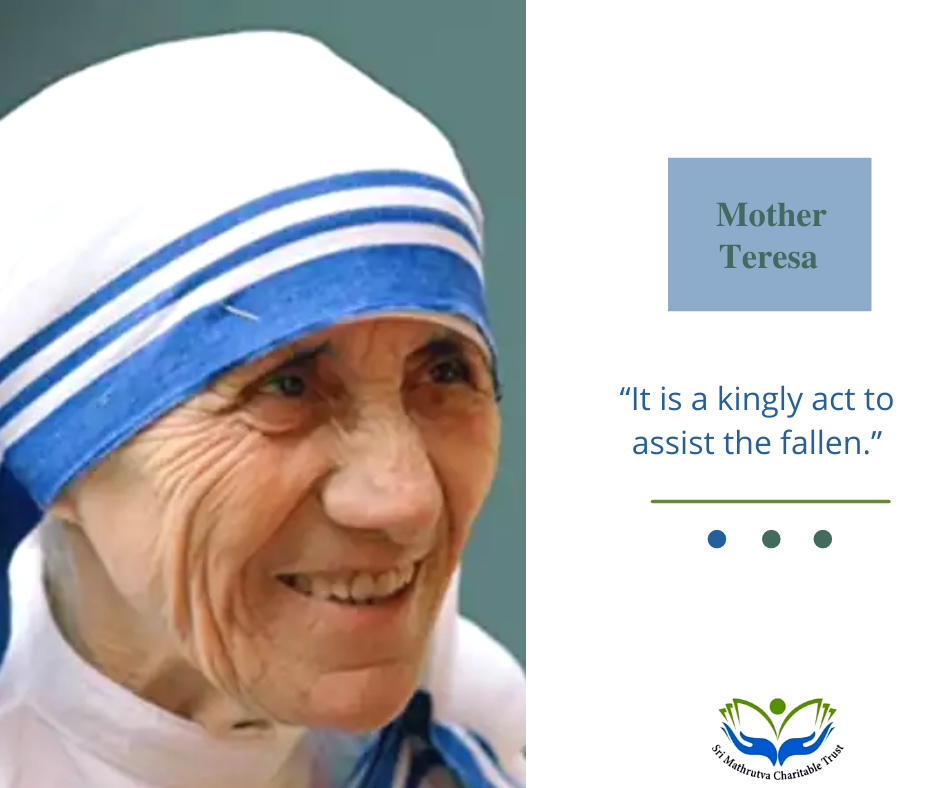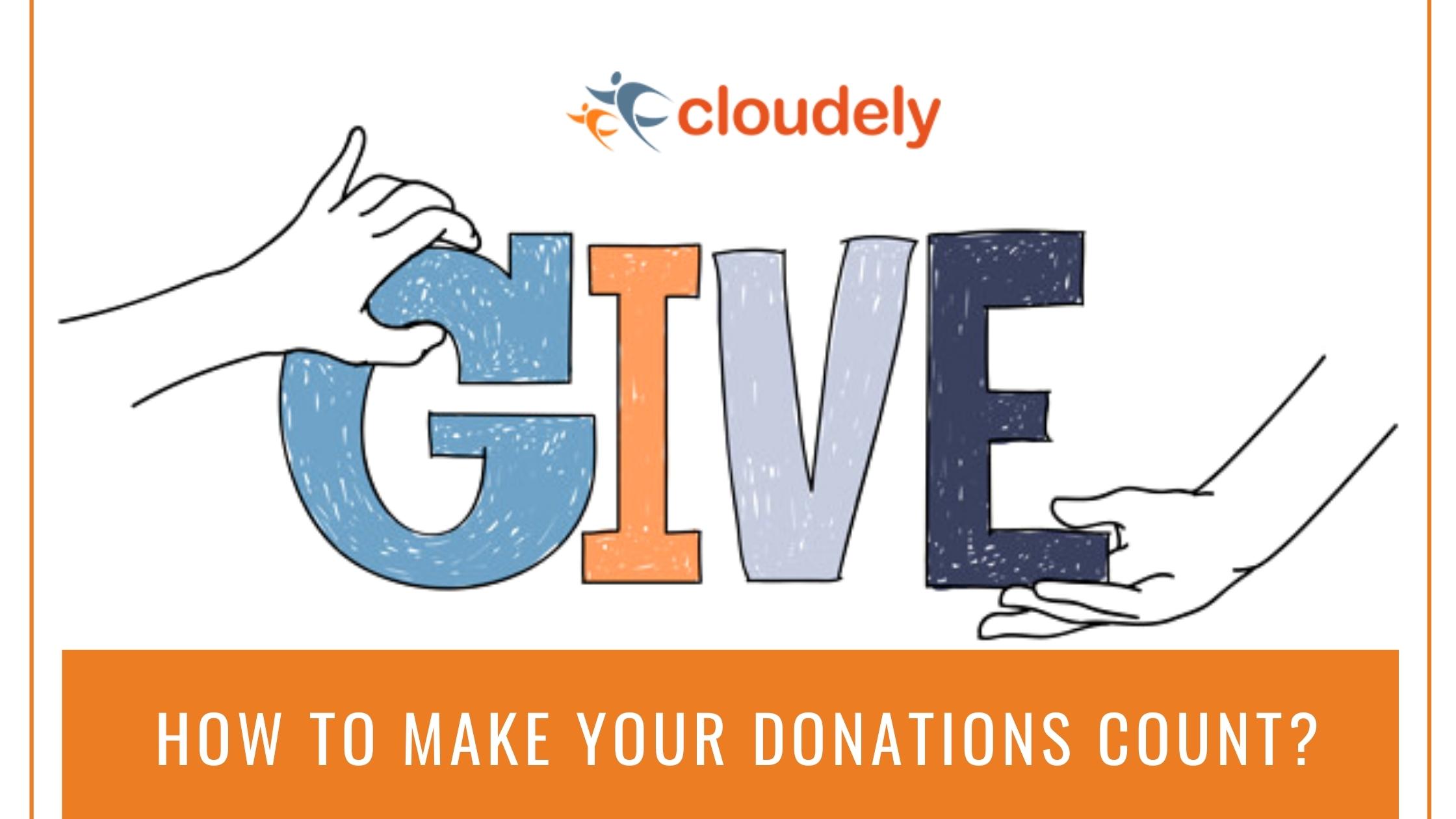Donating money to a cause is a fulfilling practice. People who are in a position to do so can think of it as giving back to society.
As a donor, you want your money to make a difference to the non-profit you donate. Right from offering unbeatable self-satisfaction to helping you avail tax exemption, donating to non-profits serve in many ways.
Organizations that pitch their necessity for funds do so in special meets popularly termed as fundraising events.
Fundraising events bring together a community that is passionate about a cause or a concern. Often, this mission is the focal point of the fundraising event.
If you are keen to donate to such fundraisers and make your donations count, here is the checklist to consider.
“It is more agreeable to have the power to give than to receive” — Winston Churchill.
#1: Find a cause to donate to
Many such organizations, especially non-profits, have a website up and running. If you are sure about the cause you wish to donate to, you can directly search for such non-profits.
For example, search terms like “NGO for children” or “elderly care homes” will give you specific results.
If you wish to browse the list of organizations, you might find websites such as GuideStar useful. This website lists out all the charities listed on its site, so you can be assured that what you pick is legitimate. (There are, unfortunately, many charities run by scammers).
Scammers usually point towards a website that looks very similar to a genuine website. On this note, here are some precautions and tips:
- If feasible, visit the non-profit office in person, meet the persons in charge and comprehend their mission and vision.
- Scammers often call and push donors to donate via gift cards or by wiring money to an account.
- Never agree to send money with someone contacted only on a phone call.
- Always use your credit card or a check to make these payments.
- There are many organizations out there with many different needs. Do spend some time thinking about how much you would like to donate and the kind of organization.
- Most organizations organize fundraising events on a yearly or bi-yearly basis. Look up their calendar to see the schedule of the next one.

#2: Check the value offered
According to the expert research, donors do not feel confident donating their money to non-profits or charities with no solid credibility. The main goal of a fundraising event is to raise money. To make your donations count, look at the value that the fundraiser is giving.
- How good is the product they are marketing?
- How reliable is their pitch?
- Are the donations tax-deductible?
- Do they have branches anywhere else?
- Is the non-profit accredited as per the local state rules?
To gain confidence that your donations count, ask them to explain their regular events, mission statement and the necessity for funds.
This gives you clarity to decide whether to donate or not and how much you may donate to their cause.
Check with them regularly to know if they are doing what they claim to do. When you are doing so, if you are happy with how the organization used your money, you can consider donating to them again.
#3: Look beyond monetary benefits
Your donations are investments for the non-profit to fulfil its goals, mission and plans. The money you donate helps them accelerate their functions and get closer to what they do. Hence, think of your donations as an investment rather than something you give and forget.
Moreover, along with raising money, donations and fundraisers are excellent network builders. They forge relationships between the fundraisers, the donors, and other like-minded people.
Before participating in a fundraising event, speak with the fundraiser to see how willing they are to continue the communication after receiving your funds if you decide to invest.
The most reliable and worthy organizations value their relationship with their donors. Their communication has no expiration date because the organization keeps the donors up to date on the happenings. They stay transparent about how your donations count and their adherence to their mission statement.
#4: Mention privacy concerns, if any
Most organizations display the list of donors and the amounts on their websites and offices as a mark of honor. In cases where the donor makes a significant contribution, organizations print it in a local newspaper.
There is no hard and fast rule here; it all depends on the non-profit’s style.
If you like the organizers to mention your name in multiple places, you can let them know you are okay with it. Otherwise, explicitly mention the conditions of anonymity before making a donation.
#5: Check if donations are tax deductible
The Internal Revenue Service (IRS) states that irrespective of the amount, all donations are tax-deductible. Remember to ask for a receipt for your donations as you can use it while filing tax returns. Amounts of $1500 require you to fill the 8283 form while filing the returns.
CharityWatch is a watchdog website that tells you the tax status of an organization. For example, if you click the “Top charities” tab and go to the listed charities to see a “Tax Status” section right beside the organization’s address.
For your donations to be tax-deductible, you should be looking for organizations registered as 501(c)(3) or 501(c)(4).
#6: Understand the cause
You can donate without checking the nitty-gritty of the organization’s functions. However, to make your donations count, understand the working of the non-profit to know where the money goes.
Also, ask the organization if they can define their short and long-term goals and plans. This step is vital because, without this, it would be hard to decipher their success journey. Additionally, research the market to find similar non-profits and competitors.

#7: Check the statements
As a donor, you can always ask for the financial statement of an organization. In this statement, you will see how they are spending theirs and your money. Organizational costs include programs, services, maintenance, and administration costs. As a donor, you can be specific about which aspect of the organization’s functioning you would like to contribute to.
#8: Focus on their story
A fundraiser raises money because there is a cause – a need for the company to further its goal that is achieving something. In the fundraising events, the organizers narrate their journey, the struggle, and the importance of what they do to help society.
Concentrate on this to understand them better because they focus on not the money but the cause.
#9: Decide how much to donate
The first step to decide how much you can donate is to look at your monthly or yearly budget. Just like you would think of buying groceries, maintaining a car, etc., as expenses, donations should fall into that category too.
Financial coach Kristine Seale suggests that you could donate 10 percent of your monthly budget – if it is comfortable and affordable.
However, if you prefer yearly donations, you can work out a related figure depending on your other expenses.
If you are still unsure about the amount, you can always ask the organization their needs and how much they require. It is vital to calculate your budget smartly so you don’t end up spending more than you can afford.

#10: Short term vs. long term commitment
A question that you should ask yourself to make your donations count is their frequency.
Would you like to make a one-time donation?
Or are you considering something more long-term, like 5 to 10 years?
Again, there is no right or wrong answer here. It is all about the financial situation and comfort levels.
A good goal is to donate to a cause you connect with and are passionate about since it is when your donations count in true essence. Plus, you will also tend towards a long-term commitment and create much more impact.
#11: Choose quality over quantity
Quality matters when it comes to donations too. Stick to non-profits that really make your donations count. And be a frequent donor to them.
Take a hard look at the non-profit’s mission statement to comprehend its motto. Keep in touch with the organization through newsletters, emails for updates, and other social media channels to stay updated about its activities.
Organizations reach out to their existing donors regularly for funds. So, staying up to date with what they are doing will help you decide whether or not you want to continue donating in the future.

Support our Non-profit
At Cloudely, we care. To serve the under-privileged. To bring a change in the world we live in.
Through our non-profit Sri Mathrutva, we have helped thousands of children suffering from Thalassemia and the elderly in care homes. Know more about our CSR Initiative at www.srimathrutva.org and support our cause. All donations you make to Sri Mathrutva are tax exempted.
Cloudely is a premier global organization in Staffing, Contract Lifecycle Management, Salesforce Training and Implementation, and Quote to Cash. To avail of our services or partner with us, please email us at hello@cloudely.com. Follow us on LinkedIn to get to know us better.






